Wu Wei, Mbuki-Mvuki, and Other Words That Will Delight You

"Hearst Magazines and Yahoo may earn commission or revenue on some items through the links below."
Perhaps it was “hygge” (deliberate coziness, Danish). Perhaps it was “dolce far niente” (the joy of doing nothing, Italian). At some point, you realized that other languages and cultures have different ways of speaking about emotions.
“Some people say you can never truly understand a word from another culture, but I don't think that's true,” says Dr. Tim Lomas, author of The Happiness Dictionary. “You might not get all its layers, but there might be new layers formed, based on your own cultural understanding.” In other words, the meaning of “happiness” can evolve.
Even better: Words that express happiness can help you improve your own. Katja Pantzar, author of The Finnish Way, says that a good sense of “sisu,” a Finnish concept that means not giving up in the face of challenges, can improve physical and mental wellbeing, which has the spillover effect of happiness. Practicing sisu “means using resilience-building skills such as looking for solutions when faced with setbacks and trying to break out of negative lifestyle habits and thought patterns,” Pantzar adds.
Gaining something new from another culture is the idea behind books like The Little Book of Hygge by Meik Wiking, Lagom: The Swedish Art of Balanced Living by Linnea Dunne and Bella Figura: How to Live, Love, and Eat the Italian Way by Kamin Mohammadi. The latest entry to these volumes is Niksen: Embracing The Dutch Art of Doing Nothing by Olga Mecking, who noted in her viral New York Times article about niksen that it “shows you have to take a break from all the busyness while giving you sincere, heartfelt permission to do nothing.”
We’ve taken a good look at the online lexicon Dr. Lomas compiled in order to highlight terms that may inspire you to increase happiness in your own life.
Dadirri
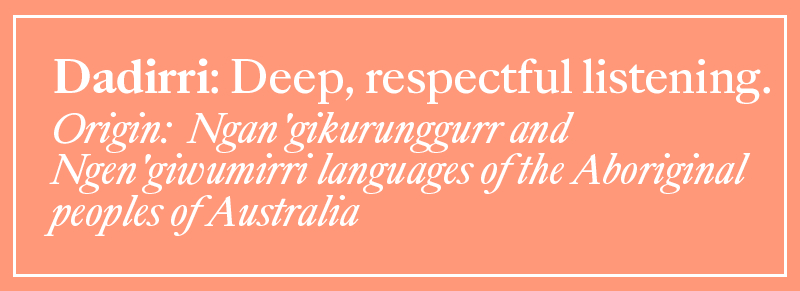
Meaning: Deep respectful listening
Language of Origin: Ngan'gikurunggurr and Ngen'giwumirri languages of the Aboriginal peoples of Australia
Try It: The next time your partner or a beloved family member wants to talk, try cultivating the inner stillness that comes from attention to the natural world and its rhythms.
Jeong
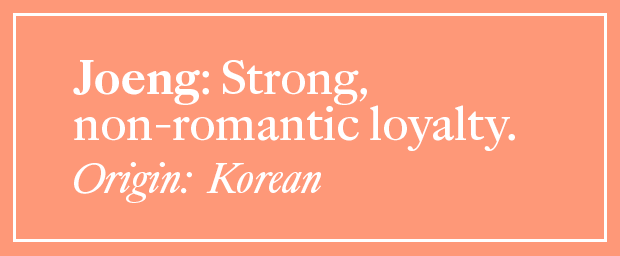
Meaning: Strong, non-romantic loyalty
Language of Origin: Korean
Try It: Yes, this can apply to friends and pets. However, think about the loyalty you feel for people who provide services for you, like a great hairstylist, and make a point to acknowledge them.
Mbuki-mvuki
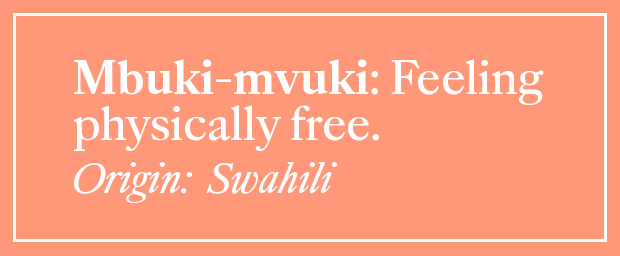
Meaning: Feeling physically free
Language of Origin: Swahili
Try It: Some definitions say this compound word means “to shed clothes and dance with abandon,” and isn’t that how you feel when you get home and take off your bra? Why not do a little happy dance while you’re changing into sweats?
Niksen
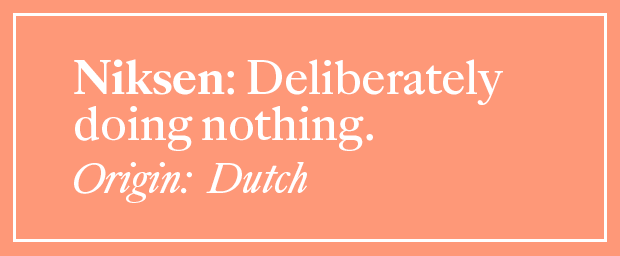
Meaning: Deliberately doing nothing
Language of Origin: Dutch
Try It: You’ll have to do better than “unplugging” from social media. “Niksen” means no devices, and no stimuli, either. Open a window, lie on your sofa, and listen to birdsong. Bonus points if you drift off to sleep.
Sati
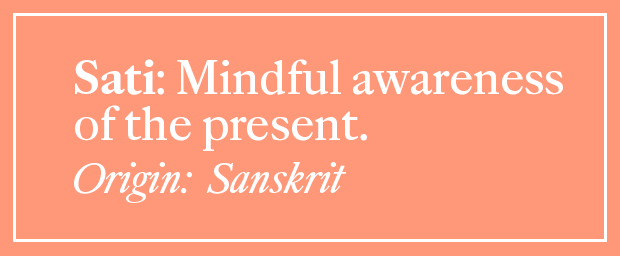
Meaning: Mindful awareness of the present
Language of Origin: Sanskrit
Try It: Not everyone loves to meditate. If mantras and deep breathing leave you cold, think of sati as active mind-clearing. Focus just on what you are doing, whether it’s the dishes or downward dog.
Shinrin-yoku
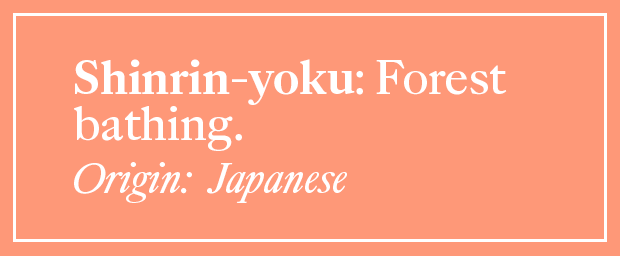
Meaning: Forest bathing
Language of Origin: Japanese
Try It: Just go take a walk in the forest, right? Well, some of us don’t live close to the woods or have time to visit one. Instead, try adding a few new plants to your home environment or watch a calming video of green spaces.
Sisu
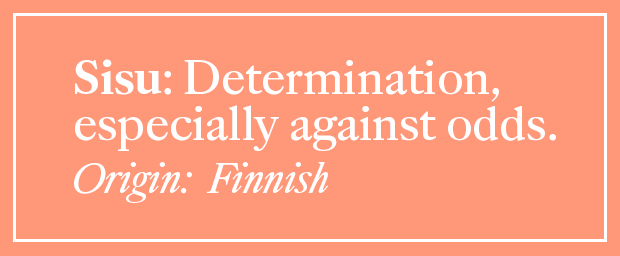
Meaning: Determination, especially against the odds.
Language of Origin: Finnish
Try It: Katja Pantzar bathes in the Baltic 365 days a year. If you’re not up for that icy feat, try setting challenges for yourself that fit in with your day-to-day: Walk two miles to work. Weed for 15 minutes more when you start to feel tired. Meet the "impossible" deadline.
Tarab
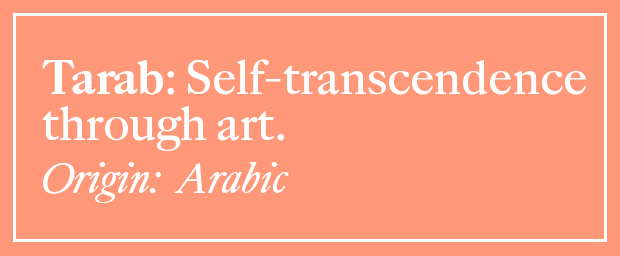
Meaning: Self-transcendence through art
Language of Origin: Arabic
Try It: Especially when it involves music, “tarab” involves enchantment, the listener losing track of time and space. Put on music that moves you and give yourself over to its beauty.
Tonglen
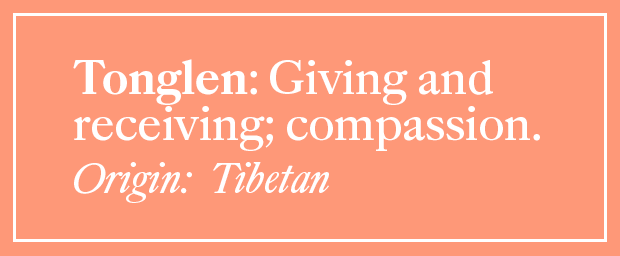
Meaning: Giving and receiving, compassion
Language of Origin: Tibetan
Try It: “Tonglen” is technically a meditation practice. However, it means altruism, something you can practice by bringing a meal to a sick friend, volunteering at a local shelter, or donating time to a hotline.
Ubuntu
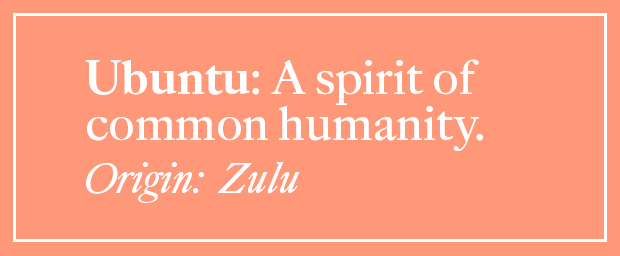
Meaning: A spirit of common humanity
Language of Origin: Zulu
Try It: Many of us have experienced social unity and generosity of spirit as we’ve donned our masks and eschewed large gatherings during this pandemic year. We can remember the greater good even when we no longer have to socially distance.
Wu wei
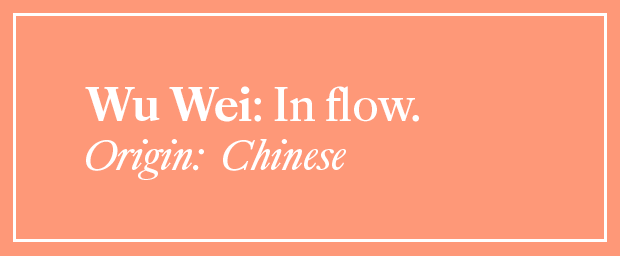
Meaning: In flow
Origin: Chinese
Try It: “Go with the flow” isn’t just surfer slang, but an ancient concept that can help anyone experience more ease. Forget about the dust bunnies under the beds and the to-do lists in your head and stay outside for an extra hour to watch the sunset.
You Might Also Like

